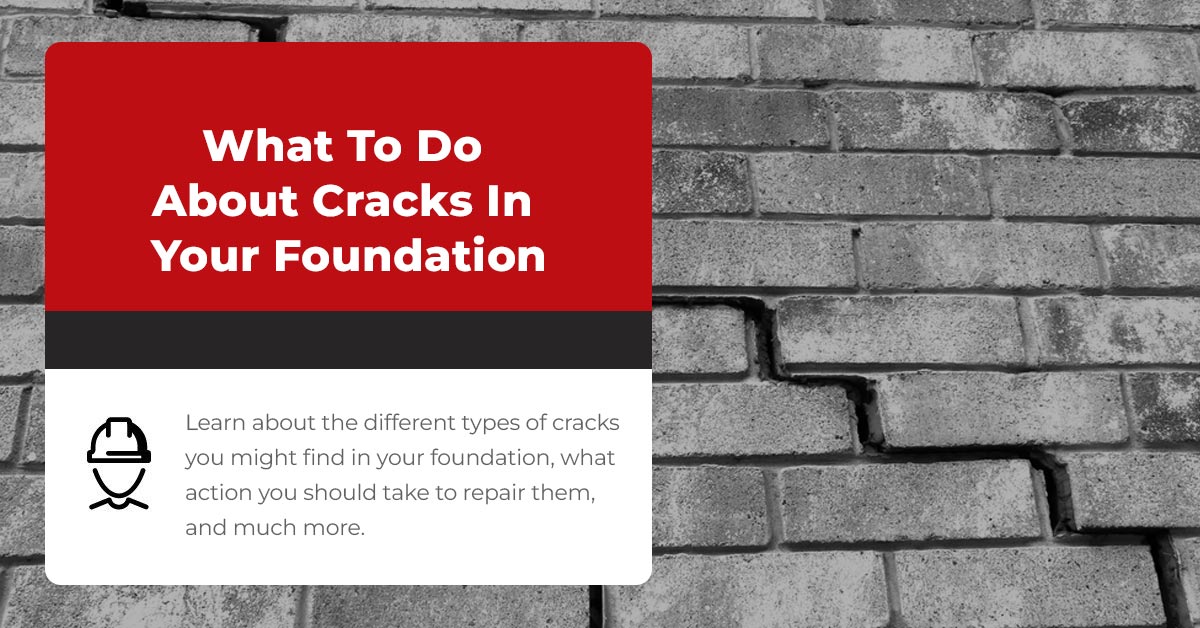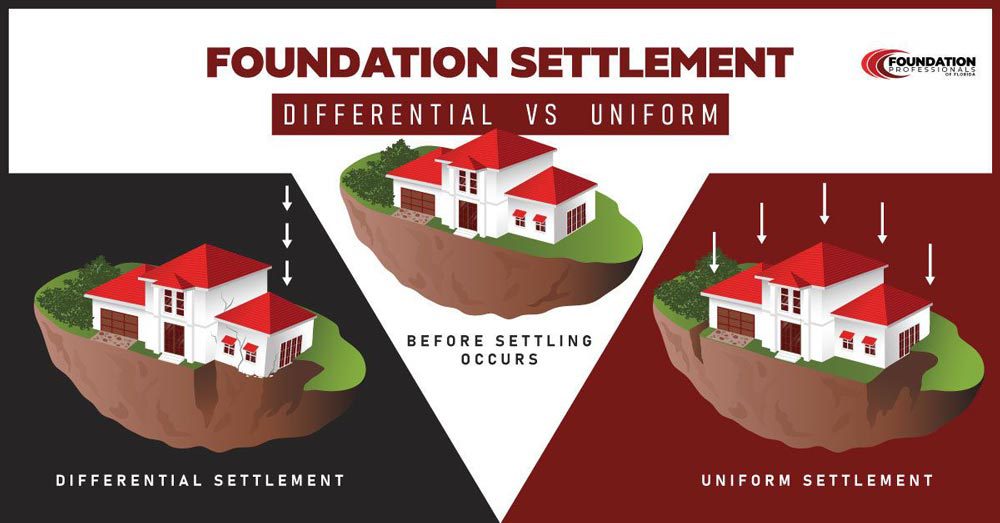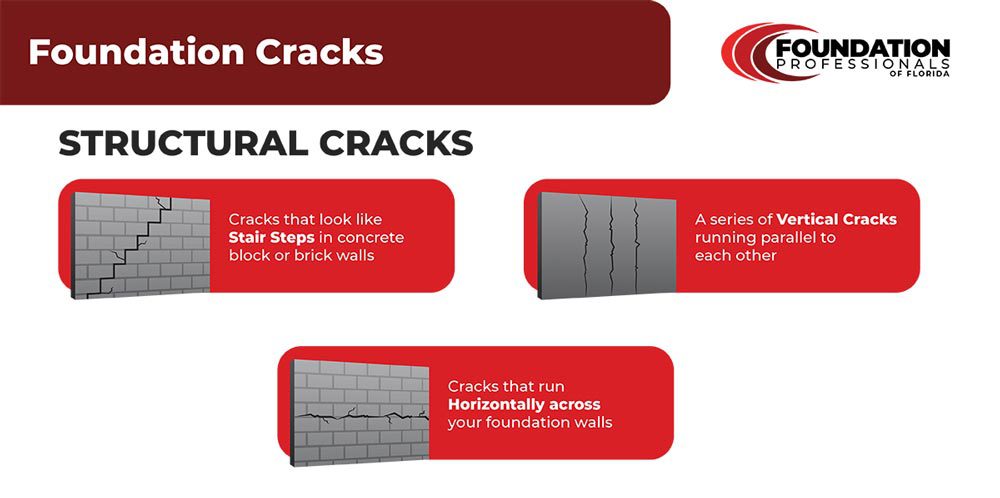Have you recently discovered a crack in your foundation? If so, you know how concerning it can be to learn that one of your home’s most crucial structural components may be damaged.
Did you know that some cracked foundations should receive immediate attention while others should not cause concern? In this article, we’ll discuss the best ways to know whether your foundation cracks are something you should worry about.
Common Causes of Foundation Cracks
Before discussing what to do when your foundation becomes cracked, let’s discuss some of the reasons why this might occur in the first place.
Differential Foundation Settling
One of the most common reasons why a foundation may become cracked is due to settling. Foundation settling happens when the soil below your house shifts or sinks, and your foundation settles into the open gaps the soil leaves behind.
Following construction, a small amount of foundation settling is quite common. However, these subtle foundation shifts rarely cause cracks in your basement walls, and they typically do not result in significant structural damage.
When severe or uneven settling occurs, it has a far more significant impact on the structural integrity of your foundation. In such cases, the cracks you find will likely be relatively long and may be wide enough to allow air and water to seep into your basement
Concrete Curing
The concrete curing process can also cause small hairline cracks in your basement walls. Again, these thin cracks are likely to appear just after construction and are usually nothing to worry about.
Hydrostatic Pressure
Another common cause of foundation wall cracks is hydrostatic pressure. Your basement wall is responsible for holding back the immense weight of the soil behind it. When that soil becomes saturated, the pressure on your foundation wall increases.
Eventually, this pressure can become too much for your basement wall. One of the first signs that this may be the case for your wall is the appearance of cracks and bowing.
Different Types of Foundation Cracks
The action you take after finding a crack in your foundation depends on the type of crack you have. In the sections below, we’ll explain a few of the most common types of foundation cracks and whether or not they should concern you.
Vertical
A thin vertical crack that runs up your basement wall is one of the most common and often results from the shrinkage that occurs while concrete cures. Fortunately, vertical fissures usually do not require any special attention or repair–especially if they are thin.
Monitoring any crack you find in your foundation is still a good idea. Even if the crack is vertical, if it starts to widen significantly or allow water to leak through, you should call a foundation expert to fix it as soon as possible.
Horizontal
While thin vertical cracks are often harmless, the same cannot be said for horizontal cracks. In most cases, a horizontal crack indicates that the structural integrity of your foundation is beginning to fail.
Horizontal breaks are often the result of excessive hydrostatic pressure, but they can also arise from other causes. Regardless of the cause, however, any time you see a horizontal crack, you should have it repaired immediately.
Stair step
Stair step cracks can appear in brick and concrete block foundations and are a sure sign of differential settling.
If the stair step cracks in your wall are small, there is a chance that your foundation may not require extensive repairs. However, it is always best to have a foundation professional evaluate your stair step cracks to determine their severity. In some cases, the cracks in your foundation’s mortar cause the masonry to loosen or fall out, and they may indicate that your foundation has larger structural issues.
Evaluating a Cracked Foundation
Regardless of the crack you have in your foundation, a few signs can indicate your foundation needs repair. Mainly, you should evaluate your foundation cracks’ overall size and depth.
If the cracks are wide, deep, or worsening significantly, or allowing moisture to seep into your basement, call a foundation repair team to assess them and determine the best foundation repair solution.
Get Help with Your Foundation Cracks
As you now know, whether your foundation cracks are something to worry about or not depends on what kind of crack you have and its severity. However, if you’re still unsure what to do about your foundation cracks, get a professional’s opinion.
At Foundation Professionals of Florida, we serve Jacksonville, Tallahassee, Lake City, and the surrounding areas with the best foundation repair services in Florida. We’ll gladly look at your foundation and match you to the most relevant service for your home. Reach out today to learn more and take advantage of our offer for a free estimate!



